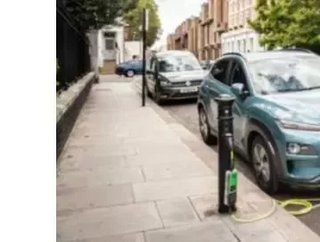Shell buys Ubitricity but "charging challenges remain"

Royal Dutch Shell has bought Ubitricity for an undisclosed fee, signalling its acceleration into the EV market as the oil giant strives to be net zero by 2050.
Ubitricity operates more than 2,700 public charging points, providing Shell with significantly enhanced capacity - it currently operates around 100 at its service station forecourts - and marking its first major move into the EV sector since its acquisition of NewMotion in October 2017.
Oliver Shaw, CEO at Kalibrate, said the deal was a significant step for the market but the challenge remains making charging points universally accessible. "Building an EV charging network doesn’t happen overnight; it will require a significant investment to make it possible and, more importantly, a deep understanding of where these charging points need to be placed to make EV ownership more appealing to all of society," he said.
Once an optimised and operational EV network is in place, forecourts will need to introduce supplementary services, like somewhere where consumers can check emails or social media, or have a quick meal or coffee, he added.
The UK’s first electric forecourt, in Braintree, goes some way to plugging this issue, as it provides drivers with somewhere to charge their car and access quality services and food - and with its network of forecourts and shops, this may be an area where Shell can make clear in-roads. Rivals bp bought Chargemaster in June 2018.
“Fuel retailers, petrol forecourts and global oil giants are now consolidating their services," said Shaw.
"Asda and the Issa brothers have bet their whole business model on fuel and convenience in one place, while in the US 7-Eleven's purchase of Speedway is yet another indication of the future where services are consolidated under one roof. Developments like this show us that the future of automotive and EVs is bright, but we have a long way to go yet before they are a viable option for all."
Another major challenge in the EV arena is providing enough battery capacity to keep up with spiralling demand. The UK alone needs seven 'gigafactories' by 2040 and supply chains must be finalised within five years to avoid high EU export tariffs.






